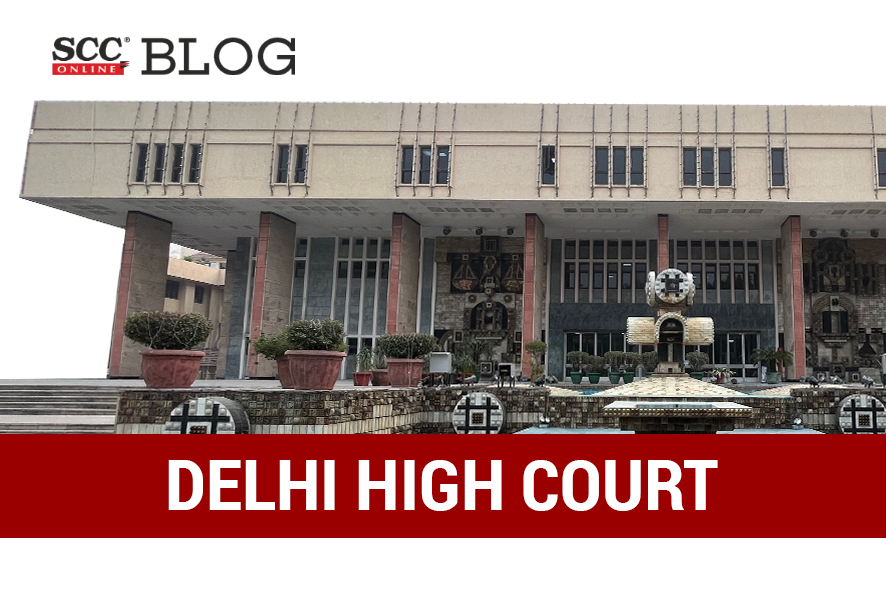Delhi High Court: In a petition filed by Clix Capital Services Private Limited (petitioner) challenging the order passed by the Revenue Department (respondent) disposing of the petitioner’s representation for initiation of the penalty imposed under Section 271-C of the Income Tax Act, 1961, a division bench of Rajiv Shakdher and Tara Vitasta Ganju, JJ., set aside the delayed show cause notice issued under the provision of Income Tax Act, 1961 (IT Act) for the delay being ‘unreasonable’ and ‘unexplained’.)
The petitioner in its return for Assessment Year (‘AY’) 2007-08 dated 31-10-2007 had declared the taxable income as Rs. 47,39,42,143/-. However, on 31.03.2009, the petitioner filed a revised return and pegged its taxable income at Rs. 47,14,28,736/- by adding back certain expenses amounting to Rs. 84,62,03,987/- by way of abundant caution, having regard to the provisions of Section 40(a)(ia) of IT Act.
In the succeeding AY (2008-09), the petitioner, while filing its return, claimed the very expense which it had added back as a deduction, as the said amount had been expended. Thus, the amount of Rs. 84,62,03,987/- was claimed as a deduction in AY 2008-09.
The Assessment year 2007-08 was subjected to scrutiny, according to which an assessment order under Section 143(3) of IT Act was passed dated 28-10-2011 wherein the Assessing Officer had quantified the total taxable income as Rs. 102,06,71,340/- who had suggested the Additional Commissioner of Income Tax to impose penalty on the petitioner for failure to deduct tax.
Consequent to the first Show Cause Notice dated 09-11-2017, the petitioner was called upon to explain why the penalty ought not to be imposed under Section 271-C of IT Act qua AY 2007-08. Inter alia, the petitioner had raised a preliminary objection dated 19-12-2017 regarding the assumption of jurisdiction by the respondent stating that proceedings were barred by limitation. Apparently, without dealing with the preliminary objection posed by the petitioner, the respondent fixed the matter for hearing. This impelled the petitioner to approach the Court in the first instance by way of a writ petition which was disposed of dated 09-05-2018.
The Court in the said matter had remitted it back to the respondent with the direction to dispose of the petitioner’s representation which inter alia, concerned wrongful assumption of jurisdiction by the respondent. However, in the interregnum, the petitioner had moved an application for seeking modification of the order which led to the respondent passing the impugned Order which was followed by a second show cause notice.
Issue for consideration
-
Can initiation of penalty proceedings be left to the whims and fancies of the revenue, or should it be hitched to the dicta of ‘reasonable period’ adopted by Courts in such situations, in the absence of a statutory provision?
Court Analysis
The Court was of the view that Section 275(1)(c) of the Act had two limbs:
-
Fixation of period of limitation when penalty was sought to be imposed as fall out action taken in another proceeding.
-
Section 275(1)(c) of IT Act fixes the period of limitation, where initiation of action of imposition of penalty was taken on a standalone basis i.e., not as a consequence of action taken in another proceeding.
The Court observed that for the second limb, the legislature had provided a limitation of six months from the end of the month in which action for imposition of penalty was initiated. While timeframe was provided for the conclusion of penalty proceedings once initiated, there was no indication as to when the period of six months ought to commence.
The Court stated that when the revised return was filed for AY 2007-08, a scrutiny assessment under Section 143 (3) of the Act was framed. Despite flagging the issue of limitation in 2013-2014, no steps were taken for the issuance of a show cause notice in that time period..
The Bench viewed that the delay in issuing the impugned show cause notice dated 09-11-2017 was inexcusable as there was no explanation as to why the show cause notice under Section 274 of IT Act was not issued in 2013-14, if not earlier.
The Court stated that even if it were to give leeway to the respondent that the period for commencement of limitation prescribed in terms of Section 275(1)(c) of IT Act would commence either from 2013 or 2014, there was a period of unexplained substantial delay, as the show cause notice, concededly, was issued only on 09.11.2017.
Thus, with the above observation, the Bench while agreeing with the contention of the petitioner that the show cause notice dated 09-11-2017 was woefully delayed, quashed the same. Consequentially, the impugned order dated 14-06-2018 collapsed, which was also the fate of the second show cause notice dated 27-06-2018.
[Clix Capital Services Private Limited v Joint Commissioner of Income Tax, 2023 SCC OnLine Del 1821, decided on 16-02-2023]
Advocates who appeared in this case :
For the petitioner- Advocate Sachit Jolly, Advocate Rohit Garg, Advocate Soumya Singh, Advocate Disha Jham and Advocate Sohum Dua;
For the respondent- Senior Standing Counsel Abhishek Maratha.






